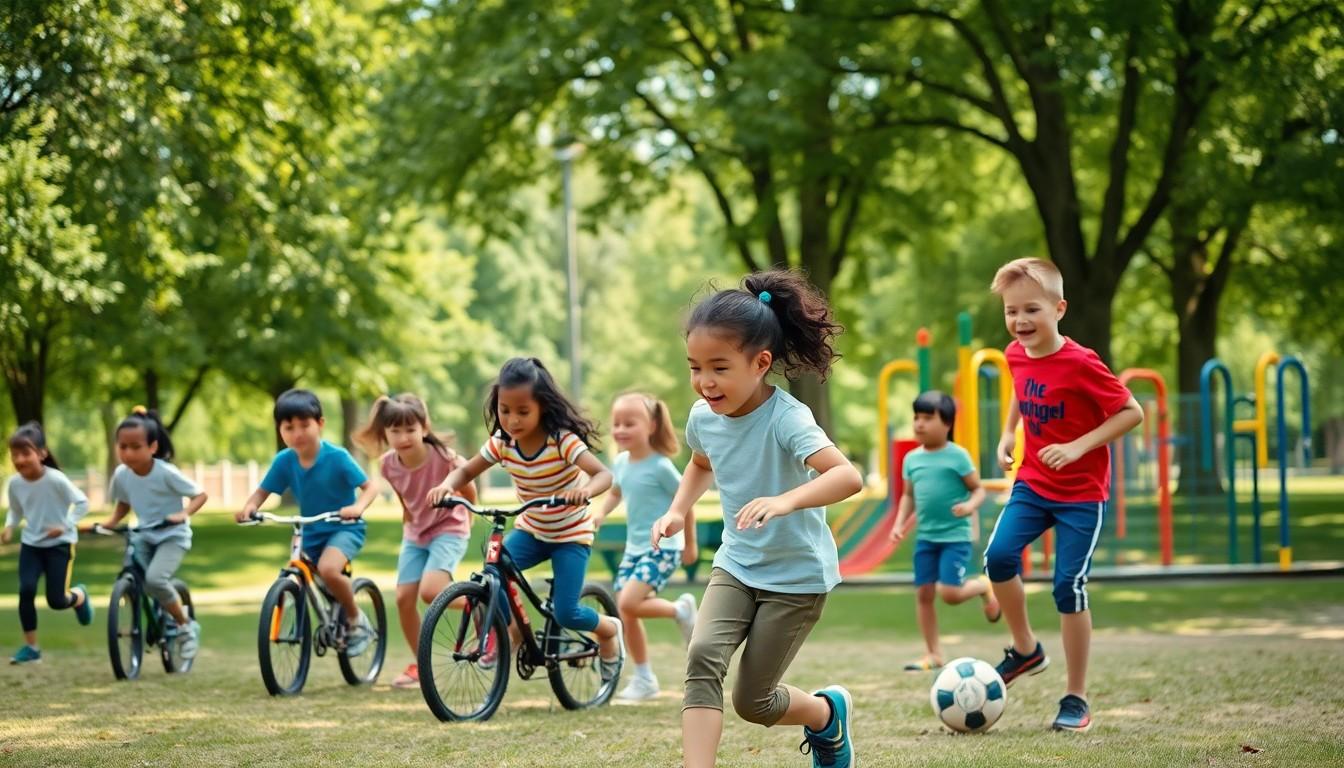How Does Responsible Parenting Affect a Child’s Physical Health? Discover the Surprising Impact

Ever wonder how does responsible parenting affect a child’s physical health? It’s not just about making sure they eat their veggies—though that’s a solid start. Responsible parenting shapes everything from a child’s nutrition to their activity levels, creating a foundation for a healthier future. After all, kids don’t come with an instruction manual, but parenting choices can make all the difference.
Imagine a world where kids actually enjoy broccoli, and running around the park is more appealing than screen time. With a sprinkle of guidance and a dash of humor, responsible parenting can transform health habits into lifelong practices. So let’s dive into the ways that nurturing, informed parenting not only keeps kids on their feet but also sets them up for a vibrant, active life.
How Does Responsible Parenting Affect a Child’s Physical Health?
How does responsible parenting affect a child’s physical health? Responsible parenting significantly shapes a child’s physical health. Effective approaches establish patterns that influence nutrition and activity levels.
Definition of Responsible Parenting
Responsible parenting refers to the practices that promote a child’s overall well-being. It involves making informed choices related to nutrition, physical activity, and emotional support. A parent’s role extends beyond providing basic necessities. Engaging with children in various activities fosters their development. Encouraging open communication strengthens trust and understanding. Children thrive when caregivers model healthy habits and behaviors.
Key Principles of Responsible Parenting
Key principles guide responsible parenting. Prioritizing consistent routines helps children feel secure. Integrating nutritious foods into daily meals prevents unhealthy eating habits. Encouraging regular physical activities improves fitness levels. Setting boundaries and maintaining discipline fosters responsibility. Being involved in a child’s activities promotes bonding and support. Emphasizing education regarding health empowers children to make better choices. Healthy environments influence positive behaviors and lay foundations for lifelong wellness.
Impact on Child’s Physical Health


How does responsible parenting affect a child’s physical health? Responsible parenting plays a pivotal role in enhancing a child’s physical health. Decisions around nutrition and exercise shape a child’s development and well-being.
Nutrition and Diet
Nutrition significantly influences a child’s growth and immune system. Regularly incorporating fruits and vegetables into meals fosters healthy eating habits. Parents who model nutritious choices and involve children in meal preparation promote lifelong preferences for healthy foods. Additionally, limiting processed snacks and sugary drinks encourages balanced diets, which help maintain a healthy weight. Research shows that children with access to nutritious meals show improved physical health outcomes, demonstrating the importance of responsible dietary practices.
Physical Activity and Exercise
Physical activity forms the foundation of a child’s overall health. Engaging in sports or active play enhances strength and coordination. Parents who encourage daily exercise create opportunities for kids to experience positive physical changes. Setting aside time for family activities, such as hiking or biking, instills a love for movement. Statistics indicate that children participating in regular exercise display higher energy levels and better mental health. Prioritizing active lifestyles not only boosts immediate health but also cultivates habits that last into adulthood.
Emotional Well-Being and Its Relation
Emotional well-being plays a crucial role in a child’s overall health. Parents significantly influence how children manage stress and navigate their emotions.
Stress Management Techniques
Parents can model effective stress management techniques. Practicing mindfulness and encouraging open discussions about feelings helps children process their emotions. Engaging in physical activities can also serve as a stress reliever, fostering emotional resilience. Furthermore, teaching relaxation exercises, such as deep breathing, empowers children to cope with life’s pressures. By integrating these strategies into daily routines, parents help children build strong emotional foundations.
Importance of Supportive Environment
A supportive environment enhances children’s emotional health. Consistent routines provide stability and predictability, reducing anxiety. Positive reinforcement helps children feel valued, encouraging healthy self-esteem. Parents should prioritize communication, creating spaces for children to express their thoughts and concerns openly. Establishing trust nurtures strong emotional bonds and helps children develop confidence. Ultimately, a nurturing environment acts as a protective factor against stress, enabling children to thrive physically and emotionally.
Role of Education and Awareness
Education and awareness significantly shape a child’s physical health through informed parenting practices. Parents equipped with health knowledge contribute positively to their child’s well-being.
Educating Parents About Health
Education focused on health empowers parents to make informed choices that directly benefit their children’s physical health. Workshops on nutrition and physical activity provide essential insights. Informative sessions encourage parents to engage children in discussions about healthy eating habits. Awareness of nutrition influences meal planning and grocery shopping. Parents are motivated to discover guidelines from reputable health organizations, which aid in creating balanced diets. When parents commit to learning about health, children adopt healthier behaviors, which positively affects their growth.
Resources for Responsible Parenting
Numerous resources exist to support responsible parenting and enhance children’s health. Online platforms offer valuable information on nutrition, exercise, and emotional support. Local community centers often host parenting classes emphasizing health and wellness. Books authored by child development experts provide practical advice on creating supportive environments. Additionally, apps designed for tracking nutrition and physical activity help parents stay engaged. Access to these resources enhances parents’ effectiveness in promoting healthy lifestyles for their children, directly impacting their physical health.
A Powerful Catalyst for Nurturing Healthier Generations
How does responsible parenting affect a child’s physical health? Responsible parenting lays the foundation for a child’s physical health and well-being. By making informed choices about nutrition and encouraging active lifestyles parents can significantly influence their children’s health outcomes. Establishing consistent routines and fostering open communication creates an environment where children feel supported and empowered to make healthy choices.
The impact of these practices extends beyond childhood into adulthood shaping lifelong habits that promote wellness. When parents prioritize both physical activity and emotional support they not only enhance their child’s immediate health but also equip them with the tools to navigate life’s challenges. Ultimately responsible parenting is a powerful catalyst for nurturing healthier generations.



